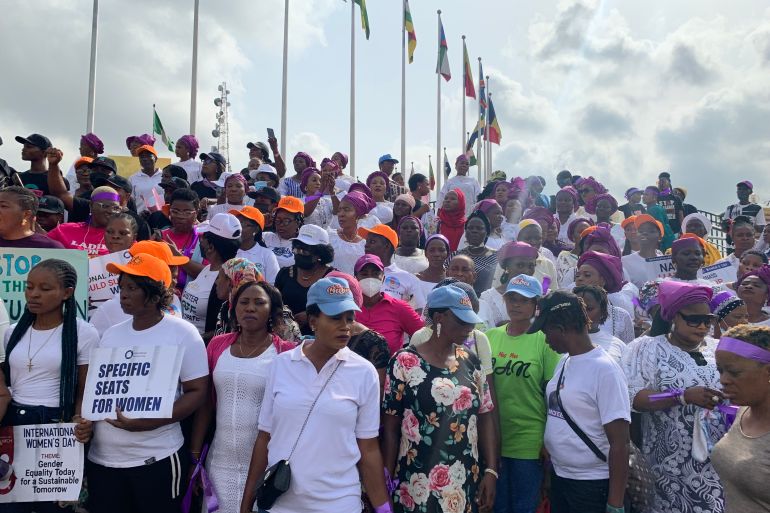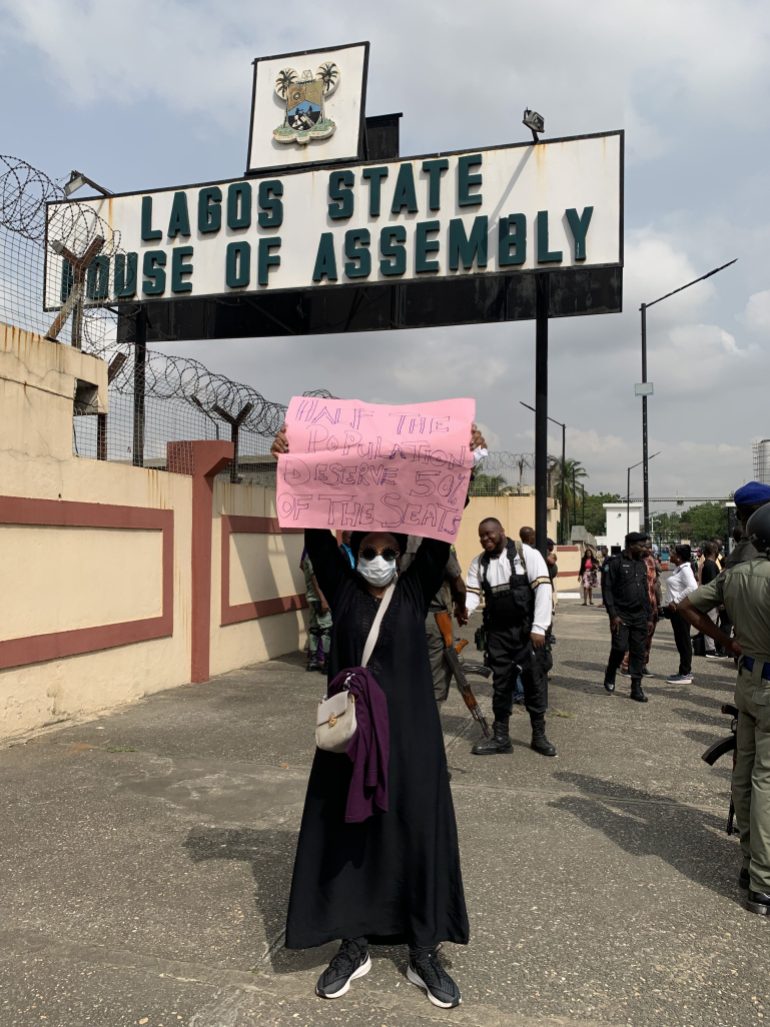Nigerian parliament rescinds decision on gender equality bills
The lawmakers’ decision on International Women’s Day came hours after simultaneous protests by women in four states.

Nigeria’s lower house of parliament has rescinded its decision on three bills that it discarded at a constitutional amendment session.
The decision, announced by the House of Representatives on Tuesday, was a volte-face on parliament’s March 1 decision to reject the proposed bills. It will now reconsider the bills in a month when it reconvenes for another parliamentary session.
Breaking:
Constitution Review: @HouseNGR rescinds decisons on three women-related bills for re-consideration. They are the bills on citizenship, indigenship and 35% affirmative action for women.— House of Reps NGR (@HouseNGR) March 8, 2022
One of the amendments was to grant citizenship to foreign-born husbands of Nigerian women; the Nigerian constitution already confers automatic citizenship on foreign-born wives of Nigerian men. Another would have given a woman the right to become indigenes of their husband’s state after five years of marriage.
The third provision was to assign 35 percent of legislative seats to women, as well as reserve 35 percent of political party leadership, for women.
The parliamentary decision came hours after women protested across three states and the commercial capital of Lagos, on International Women’s Day. It was the second such protest within a week.
“A slap to the face of Nigerian women”
Tuesday morning’s protests, the second in a week, came on the heels of the federal parliament’s rejection of five bills to promote gender equality. The demonstrations were also a call for justice after recent reports of sexual violence and ritual killings targeting women
In Lagos, women had gathered at the government secretariat at Ikeja, the city’s seat of power, singing loudly and chanting multiple grievances against society and government.
‘’It was a march organised to create awareness that women are no longer sitting on the sidelines to demand to be included in government,’’ Stephanie Etiaka, a Lagos-based tech operations manager, told Al Jazeera. “The recent bills that have been turned [down] by the legislative arm of government are a slap to the face of Nigerian women, saying we know that the system is rigged against you and we are not doing anything to create inclusivity.”
Experts and activists have pointed to a lack of women’s participation in government as a factor responsible for the downscaling of women’s rights, as well as a high rate of gender-based violence and economic inequality in Nigeria.
“There is a reason this country is not working,” Kadaria Ahmed, director of Radio Now 95.3 FM, told Al Jazeera at the Lagos protest. ‘’One of them is the lack of female participation. You cannot deny 50 percent of your population the chance to govern themselves to make laws and policies for themselves and expect that the country will make progress.’’
Womanifesto, a coalition of pro-gender equality women organisations in Nigeria, sent a petition to the state and federal parliaments stressing that “women decry this denial and consider [it] a death knell for everything female and for women’s rights.”
The petition demanded the “urgent re-convening, reconsideration and immediate passage of the five women/gender-related bills’’, among other requests.

“Retrogression”
In Lagos, a plot twist ensued after a march to the governor’s office. Politician after politician gave speeches about their lobbying efforts within government to ensure equality. And then the crowd began booing the speakers, mostly male members of the state parliament and a few female politicians.
Ireti Bakare, a member of the Womanifesto group and lead organiser of the Lagos rally, expressed disappointment at what she considered a hijacking of the protest by the political elite, for posturing.
‘’It is ridiculous,’’ she said. “[The protest] has been taken over by Lagos state.”
Protesters on the ground said the change in dynamics highlighted the struggle between civil organisations working towards gender equality and the political class. The protest ended with the civil organisations staging a walkout.
Half of Nigeria’s population is female but women’s representation in politics and government is still very low. Despite years of lobbying and activism, political spaces for women continue to shrink. Female legislators currently make up 4 percent of the legislature, a decrease from 5.8 percent in 2015.
At the rally, public officers including the state commissioner for women affairs called for patience, but those present insisted that they had reached the tipping point.
‘’Nigeria has been independent since 1960 and that is a long time to be patient,” Ahmed said. “What we have seen in the last 10 years is retrogression.”